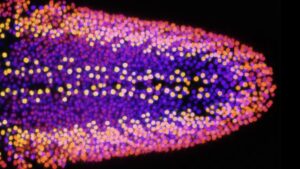Few studies have thoroughly examined the simultaneous effects of late eating on the three leading players in weight regulation and, thus, obesity risk:
- Regulation of calorie intake.
- The number of calories you burn.
- Molecular changes in fat tissue.
Popular healthy diet mantras generally advise against midnight snacking.
A new study by Harvard Medical School investigators at Brigham and Women’s Hospital found that eating significantly impacts our energy expenditure, appetite, and molecular pathways in adipose tissue.
Scientists wanted to determine the mechanisms that may explain why late eating increases obesity risk. The previous study has shown that late eating is associated with increased obesity risk, increased body fat, and impaired weight loss success. Scientists wanted to understand why.
They studied 16 patients with a body mass index in the overweight or obese range. Every participant completed two lab protocols: one with a strict early meal schedule and the other with the same meals scheduled for around four hours later in the day.
In the lab, participants regularly documented their hunger and appetite, provided frequent small blood samples throughout the day, and measured their body temperature and energy expenditure.
During laboratory testing in both the early and late eating protocols, scientists gave biopsies of adipose tissue from a subset of participants to compare gene expression patterns/levels between these two eating conditions. This allowed them to measure how eating time affected molecular pathways involved in adipogenesis or how the body stores fat.
Results revealed that eating later had profound effects on hunger and the appetite-regulating hormones leptin and ghrelin, which influence our drive to eat. Specifically, levels of the hormone leptin, which signals satiety, were decreased across the 24 hours in the late eating conditions compared to the early eating conditions.
When participants ate later, they also burned calories slower and exhibited adipose tissue gene expression toward increased adipogenesis and decreased lipolysis, which promotes fat growth.
Notably, these findings convey converging physiological and molecular mechanisms underlying the correlation between late eating and increased obesity risk.
First author Nina Vujović, a researcher in the Medical Chronobiology Program, said, “these findings are not only consistent with a large body of research suggesting that eating later may increase one’s likelihood of developing obesity, but they shed new light on how this might occur.”
By using a randomized crossover study, and tightly controlling for behavioral and environmental factors such as physical activity, posture, sleep, and light exposure, scientists detected changes in the different control systems involved in energy balance, a marker of how our bodies use the food we consume.
Through further studies, scientists would like to recruit more women to increase the generalizability of their findings to a broader population.
Frank Scheer, HMS professor of medicine and director of the Medical Chronobiology Program in the Division of Sleep and Circadian Disorders at Brigham and Women’s, said, “This study shows the impact of late versus early eating. Here, we isolated these effects by controlling for confounding variables like caloric intake, physical activity, sleep, and light exposure. Still, in real life, many of these factors may themselves be influenced by meal timing.”
Journal Reference:
- Nina Vujović, Matthew J. Piron et al. Late isocaloric eating increases hunger, decreases energy expenditure and modifies metabolic pathways in adults with overweight and obesity. Cell Metabolism. DOI: 10.1016/j.cmet.2022.09.007













